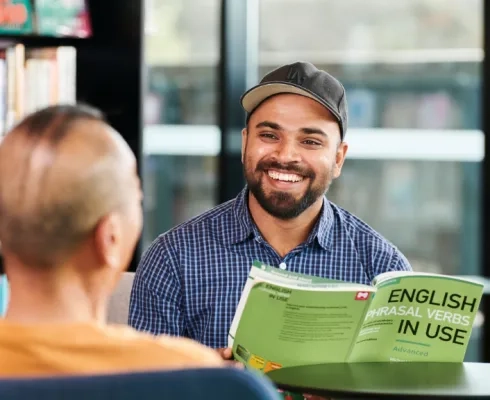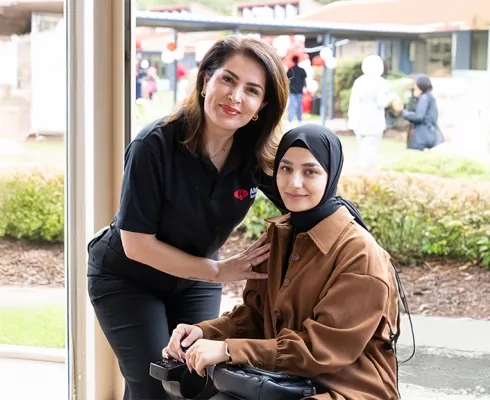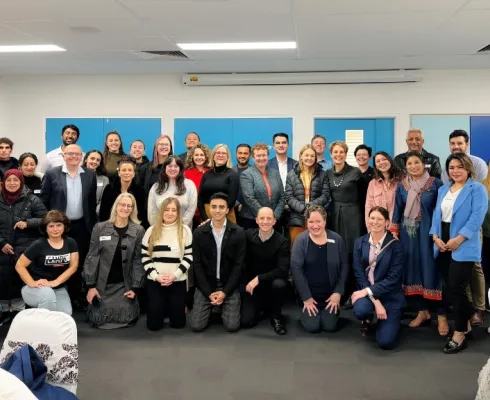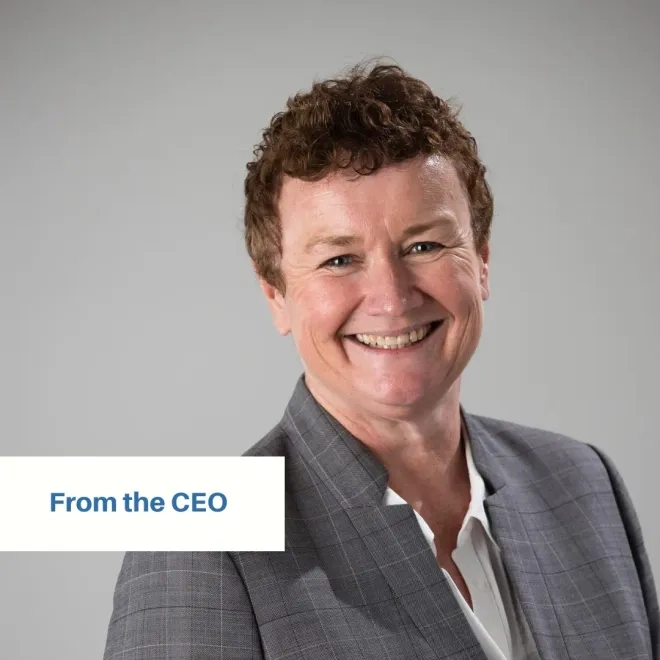From the CEO
Cath Scarth, AMES Australia CEO
Unlimited English classes for migrants, refugees are welcome
Learning English for newly arrived refugees and migrants is critical to their successful settlement in Australia.
Which is why we very much welcome the news from the Acting Minister for Immigration, Citizenship, Migrant Services and Multicultural Affairs Alan Tudge that from today permanent residents and citizens with poor English will have access to unlimited language classes.
It is also good news that a proposal for a university level English test as part of citizenship requirements is not included in the new arrangements.
In making the announcement the Minister reported that current arrangements lacked impact with people typically completing only 300 of the 510 hours of classroom-based free language tuition available to them.
This is true and we know that a lack of English can be a major barrier to people find employment and achieving social participation.
The extra hours of English will be invaluable – as will the removal of the five-year limit. This increased access will benefit professionally qualified refugees, for example, who need more than 510 hours to get to the stage where they can prepare to requalify in their professions.
It will also be of help to women with childcare responsibilities.
We know that lives and careers evolve, and that is true for all of us, including refugees and migrants. Some migrants, will benefit from increased flexibility in how tuition is delivered. Someone who is working nine to five may not be able to attend class room based English classes.
Minister Tudge is right when he says helping people acquire language will build social cohesion. It will also improve opportunity and access for migrants and build equity.
These developments are exciting for us at AMES. Over more than six decades we have pioneered approaches that improve access to language learning such as providing English tuition in workplaces, facilitating remote or distance teaching and producing online learning resources for students to learn at their own pace and convenience.
As a settlement, employment and education provider, we have learned over many years that language is critical to successful settlement and not just an end in itself.
We also believe the community is a classroom and when people are working and participating in the community they can also be improving their English.
But it’s also especially important that when people find work they are able to continue to engage in formal English learning.
This is particularly important in the context of the COVID-19 pandemic so that if migrants lose their jobs as a result of the economic fallout, poor English will not be a barrier to acquiring new skills and future employment. Language and communication skills are key to an inclusive recovery.
We know that it is possible to teach English skills in a flexible way, through providing online and digital resources for migrants with low level English because we have been doing it with our own students. Working directly with employers has also been successful and increased the choice of pathways available for migrants learning English.
Migrants having flexible options and more time to learn English so that it fits in with their family circumstances and work commitments will inevitably contribute towards the government’s aim of fostering social cohesion.
28 August 2020









